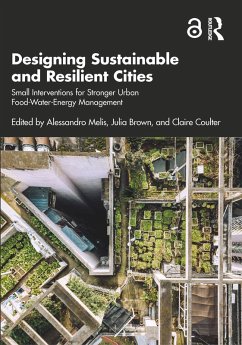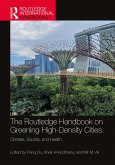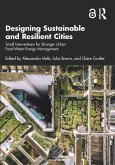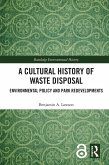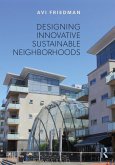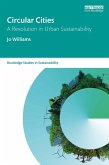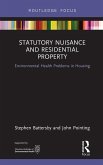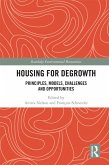Designing Sustainable and Resilient Cities (eBook, ePUB)
Small Interventions for Stronger Urban Food-Water-Energy Management
Redaktion: Melis, Alessandro; Coulter, Claire; Brown, Julia
34,95 €
34,95 €
inkl. MwSt.
Sofort per Download lieferbar

17 °P sammeln
34,95 €
Als Download kaufen

34,95 €
inkl. MwSt.
Sofort per Download lieferbar

17 °P sammeln
Jetzt verschenken
Alle Infos zum eBook verschenken
34,95 €
inkl. MwSt.
Sofort per Download lieferbar
Alle Infos zum eBook verschenken

17 °P sammeln
Designing Sustainable and Resilient Cities (eBook, ePUB)
Small Interventions for Stronger Urban Food-Water-Energy Management
Redaktion: Melis, Alessandro; Coulter, Claire; Brown, Julia
- Format: ePub
- Merkliste
- Auf die Merkliste
- Bewerten Bewerten
- Teilen
- Produkt teilen
- Produkterinnerung
- Produkterinnerung

Bitte loggen Sie sich zunächst in Ihr Kundenkonto ein oder registrieren Sie sich bei
bücher.de, um das eBook-Abo tolino select nutzen zu können.
Hier können Sie sich einloggen
Hier können Sie sich einloggen
Sie sind bereits eingeloggt. Klicken Sie auf 2. tolino select Abo, um fortzufahren.

Bitte loggen Sie sich zunächst in Ihr Kundenkonto ein oder registrieren Sie sich bei bücher.de, um das eBook-Abo tolino select nutzen zu können.
This book explores the link between the food-water-energy nexus and sustainability, and the extraordinary value that small tweaks to this nexus can achieve for more resilient cities and communities. It provides a planning tool for decision making and concludes with policy recommendations, making it relevant to a range of audiences.
- Geräte: eReader
- ohne Kopierschutz
- eBook Hilfe
- Größe: 8.88MB
Andere Kunden interessierten sich auch für
![The Routledge Handbook on Greening High-Density Cities (eBook, ePUB) The Routledge Handbook on Greening High-Density Cities (eBook, ePUB)]() The Routledge Handbook on Greening High-Density Cities (eBook, ePUB)45,95 €
The Routledge Handbook on Greening High-Density Cities (eBook, ePUB)45,95 €![Designing Sustainable and Resilient Cities (eBook, PDF) Designing Sustainable and Resilient Cities (eBook, PDF)]() Designing Sustainable and Resilient Cities (eBook, PDF)34,95 €
Designing Sustainable and Resilient Cities (eBook, PDF)34,95 €![A Cultural History of Waste Disposal (eBook, ePUB) A Cultural History of Waste Disposal (eBook, ePUB)]() Benjamin A. LawsonA Cultural History of Waste Disposal (eBook, ePUB)41,95 €
Benjamin A. LawsonA Cultural History of Waste Disposal (eBook, ePUB)41,95 €![Designing Innovative Sustainable Neighborhoods (eBook, ePUB) Designing Innovative Sustainable Neighborhoods (eBook, ePUB)]() Avi FriedmanDesigning Innovative Sustainable Neighborhoods (eBook, ePUB)37,95 €
Avi FriedmanDesigning Innovative Sustainable Neighborhoods (eBook, ePUB)37,95 €![Circular Cities (eBook, ePUB) Circular Cities (eBook, ePUB)]() Jo WilliamsCircular Cities (eBook, ePUB)38,95 €
Jo WilliamsCircular Cities (eBook, ePUB)38,95 €![Statutory Nuisance and Residential Property (eBook, ePUB) Statutory Nuisance and Residential Property (eBook, ePUB)]() Stephen BattersbyStatutory Nuisance and Residential Property (eBook, ePUB)23,95 €
Stephen BattersbyStatutory Nuisance and Residential Property (eBook, ePUB)23,95 €![Housing for Degrowth (eBook, ePUB) Housing for Degrowth (eBook, ePUB)]() Housing for Degrowth (eBook, ePUB)45,95 €
Housing for Degrowth (eBook, ePUB)45,95 €-
-
-
This book explores the link between the food-water-energy nexus and sustainability, and the extraordinary value that small tweaks to this nexus can achieve for more resilient cities and communities. It provides a planning tool for decision making and concludes with policy recommendations, making it relevant to a range of audiences.
Dieser Download kann aus rechtlichen Gründen nur mit Rechnungsadresse in A, B, BG, CY, CZ, D, DK, EW, E, FIN, F, GR, HR, H, IRL, I, LT, L, LR, M, NL, PL, P, R, S, SLO, SK ausgeliefert werden.
Produktdetails
- Produktdetails
- Verlag: Taylor & Francis
- Seitenzahl: 218
- Erscheinungstermin: 27. Juli 2022
- Englisch
- ISBN-13: 9781000606577
- Artikelnr.: 64152740
- Verlag: Taylor & Francis
- Seitenzahl: 218
- Erscheinungstermin: 27. Juli 2022
- Englisch
- ISBN-13: 9781000606577
- Artikelnr.: 64152740
- Herstellerkennzeichnung Die Herstellerinformationen sind derzeit nicht verfügbar.
Alessandro Melis is an Italian architect and the curator of the Italian National Pavilion at the 17th Venice Biennale of Architecture. He is a Professor of Architecture and the inaugural IDC Foundation Endowed Chair of New York Institute of Technology. Julia Brown is a qualitative human geographer and Senior Lecturer in Environment and Development, Department of Geography at the University of Portsmouth, UK, with a particular focus on sustainable rural water resource management in Sub-Saharan Africa. Claire Coulter is a Teaching Fellow in the Operations and Systems Management Group at the University of Portsmouth, UK. She was the Project Coordinator for CRUNCH and her research explores strategies for encouraging environmentally sustainable behaviour in urban SMEs.
Preface Steffen Lehmann, Introduction Julia Brown, Claire Coulter, and Alessandro Melis, PART 1: Urban Living Laboratories, 1.0 Introducing the CRUNCH Urban Living Labs Claire Coulter, 1.1 Eindhoven: Brainport Smart District: A circular economy experiment Maryam Ghodsvali, Gamze Dane, and Bauke de Vries, 1.2 Gdäsk: Urban Initiative Laboratory Joanna Bach-Glowinska, Karolina Kro
nicka, Jacek
ubi
ski, and Joanna Tobolewicz, 1.3 Miami: Data-driven planning and scenario tools Thomas Spiegelhalter, 1.4 Southend-on-Sea: Green infrastructure for climate resilience Claire Coulter, 1.5 Taipei: Sustainable management for wastescapes: A Food-Water-Energy nexus experiment Mei- Hua Yuan, Pei-Te Chiueh, Yu-Sen Chang, Hsin-hsin Tung, Chnag-Ping Yu, Hwong-wen Ma, Shang-Lien Lo, 1.6 Uppsala: Groundwater management in the neighbourhood of Rosendal Vera van Zoest, Edith Ngai, Shashank Shekher Tripathi, and Archit Suryawanshi, PART 2: Food-Water-Energy nexus findings, 2. The urban living lab as an adaptive governance mechanism for the transdisciplinary Food-Water-Energy nexus: Lessons learned from six local contexts Maryam Ghodsvali, Gamze Dane, and Bauke de Vries, 3. Urban greening snakes and ladders: A case study of the practical realities of implementing Food-Water-Energy nexus projects in Southend-on-Sea, UK Heather Rumble and Julia Brown, 4. Capacity: Transforming challenges into opportunities Joanna Bach-G
owi
ska, Jacek
ubinski, and Joanna Tobolewicz, 5. Data and knowledge supporting decision-making for the urban Food-Water-Energy nexus Mei- Hua Yuan, Joanna Bach-G
owi
ska, Pei-Te Chiueh, Yu-Sen Chang, Hsin-hsin Tung, Chnag-Ping Yu, Hwong-wen Ma, Jacek
ubi
ski, Shang-Lien Lo, 6. Development of an integrated decision support system (IDSS) Vera van Zoest, Edith Ngai, Shashank Shekher Tripathi, and Archit Suryawanshi, 7. Genetic Water-Energy-Food nexus design research for Miami's Greater Islands: Climate Resilient Urban Nexus CHoices (CRUNCH) - scripting and coding AI-M's Thomas Spiegelhalter, Levente Juhasz, and Srikanth Namuduri, 8. The role of Digital Twins in the CRUNCH project Chris Cooper and Claire Coulter, Conclusions Julia Brown, Claire Coulter, and Alessandro Melis
nicka, Jacek
ubi
ski, and Joanna Tobolewicz, 1.3 Miami: Data-driven planning and scenario tools Thomas Spiegelhalter, 1.4 Southend-on-Sea: Green infrastructure for climate resilience Claire Coulter, 1.5 Taipei: Sustainable management for wastescapes: A Food-Water-Energy nexus experiment Mei- Hua Yuan, Pei-Te Chiueh, Yu-Sen Chang, Hsin-hsin Tung, Chnag-Ping Yu, Hwong-wen Ma, Shang-Lien Lo, 1.6 Uppsala: Groundwater management in the neighbourhood of Rosendal Vera van Zoest, Edith Ngai, Shashank Shekher Tripathi, and Archit Suryawanshi, PART 2: Food-Water-Energy nexus findings, 2. The urban living lab as an adaptive governance mechanism for the transdisciplinary Food-Water-Energy nexus: Lessons learned from six local contexts Maryam Ghodsvali, Gamze Dane, and Bauke de Vries, 3. Urban greening snakes and ladders: A case study of the practical realities of implementing Food-Water-Energy nexus projects in Southend-on-Sea, UK Heather Rumble and Julia Brown, 4. Capacity: Transforming challenges into opportunities Joanna Bach-G
owi
ska, Jacek
ubinski, and Joanna Tobolewicz, 5. Data and knowledge supporting decision-making for the urban Food-Water-Energy nexus Mei- Hua Yuan, Joanna Bach-G
owi
ska, Pei-Te Chiueh, Yu-Sen Chang, Hsin-hsin Tung, Chnag-Ping Yu, Hwong-wen Ma, Jacek
ubi
ski, Shang-Lien Lo, 6. Development of an integrated decision support system (IDSS) Vera van Zoest, Edith Ngai, Shashank Shekher Tripathi, and Archit Suryawanshi, 7. Genetic Water-Energy-Food nexus design research for Miami's Greater Islands: Climate Resilient Urban Nexus CHoices (CRUNCH) - scripting and coding AI-M's Thomas Spiegelhalter, Levente Juhasz, and Srikanth Namuduri, 8. The role of Digital Twins in the CRUNCH project Chris Cooper and Claire Coulter, Conclusions Julia Brown, Claire Coulter, and Alessandro Melis
Preface Steffen Lehmann, Introduction Julia Brown, Claire Coulter, and Alessandro Melis, PART 1: Urban Living Laboratories, 1.0 Introducing the CRUNCH Urban Living Labs Claire Coulter, 1.1 Eindhoven: Brainport Smart District: A circular economy experiment Maryam Ghodsvali, Gamze Dane, and Bauke de Vries, 1.2 Gdäsk: Urban Initiative Laboratory Joanna Bach-Glowinska, Karolina Kro
nicka, Jacek
ubi
ski, and Joanna Tobolewicz, 1.3 Miami: Data-driven planning and scenario tools Thomas Spiegelhalter, 1.4 Southend-on-Sea: Green infrastructure for climate resilience Claire Coulter, 1.5 Taipei: Sustainable management for wastescapes: A Food-Water-Energy nexus experiment Mei- Hua Yuan, Pei-Te Chiueh, Yu-Sen Chang, Hsin-hsin Tung, Chnag-Ping Yu, Hwong-wen Ma, Shang-Lien Lo, 1.6 Uppsala: Groundwater management in the neighbourhood of Rosendal Vera van Zoest, Edith Ngai, Shashank Shekher Tripathi, and Archit Suryawanshi, PART 2: Food-Water-Energy nexus findings, 2. The urban living lab as an adaptive governance mechanism for the transdisciplinary Food-Water-Energy nexus: Lessons learned from six local contexts Maryam Ghodsvali, Gamze Dane, and Bauke de Vries, 3. Urban greening snakes and ladders: A case study of the practical realities of implementing Food-Water-Energy nexus projects in Southend-on-Sea, UK Heather Rumble and Julia Brown, 4. Capacity: Transforming challenges into opportunities Joanna Bach-G
owi
ska, Jacek
ubinski, and Joanna Tobolewicz, 5. Data and knowledge supporting decision-making for the urban Food-Water-Energy nexus Mei- Hua Yuan, Joanna Bach-G
owi
ska, Pei-Te Chiueh, Yu-Sen Chang, Hsin-hsin Tung, Chnag-Ping Yu, Hwong-wen Ma, Jacek
ubi
ski, Shang-Lien Lo, 6. Development of an integrated decision support system (IDSS) Vera van Zoest, Edith Ngai, Shashank Shekher Tripathi, and Archit Suryawanshi, 7. Genetic Water-Energy-Food nexus design research for Miami's Greater Islands: Climate Resilient Urban Nexus CHoices (CRUNCH) - scripting and coding AI-M's Thomas Spiegelhalter, Levente Juhasz, and Srikanth Namuduri, 8. The role of Digital Twins in the CRUNCH project Chris Cooper and Claire Coulter, Conclusions Julia Brown, Claire Coulter, and Alessandro Melis
nicka, Jacek
ubi
ski, and Joanna Tobolewicz, 1.3 Miami: Data-driven planning and scenario tools Thomas Spiegelhalter, 1.4 Southend-on-Sea: Green infrastructure for climate resilience Claire Coulter, 1.5 Taipei: Sustainable management for wastescapes: A Food-Water-Energy nexus experiment Mei- Hua Yuan, Pei-Te Chiueh, Yu-Sen Chang, Hsin-hsin Tung, Chnag-Ping Yu, Hwong-wen Ma, Shang-Lien Lo, 1.6 Uppsala: Groundwater management in the neighbourhood of Rosendal Vera van Zoest, Edith Ngai, Shashank Shekher Tripathi, and Archit Suryawanshi, PART 2: Food-Water-Energy nexus findings, 2. The urban living lab as an adaptive governance mechanism for the transdisciplinary Food-Water-Energy nexus: Lessons learned from six local contexts Maryam Ghodsvali, Gamze Dane, and Bauke de Vries, 3. Urban greening snakes and ladders: A case study of the practical realities of implementing Food-Water-Energy nexus projects in Southend-on-Sea, UK Heather Rumble and Julia Brown, 4. Capacity: Transforming challenges into opportunities Joanna Bach-G
owi
ska, Jacek
ubinski, and Joanna Tobolewicz, 5. Data and knowledge supporting decision-making for the urban Food-Water-Energy nexus Mei- Hua Yuan, Joanna Bach-G
owi
ska, Pei-Te Chiueh, Yu-Sen Chang, Hsin-hsin Tung, Chnag-Ping Yu, Hwong-wen Ma, Jacek
ubi
ski, Shang-Lien Lo, 6. Development of an integrated decision support system (IDSS) Vera van Zoest, Edith Ngai, Shashank Shekher Tripathi, and Archit Suryawanshi, 7. Genetic Water-Energy-Food nexus design research for Miami's Greater Islands: Climate Resilient Urban Nexus CHoices (CRUNCH) - scripting and coding AI-M's Thomas Spiegelhalter, Levente Juhasz, and Srikanth Namuduri, 8. The role of Digital Twins in the CRUNCH project Chris Cooper and Claire Coulter, Conclusions Julia Brown, Claire Coulter, and Alessandro Melis
